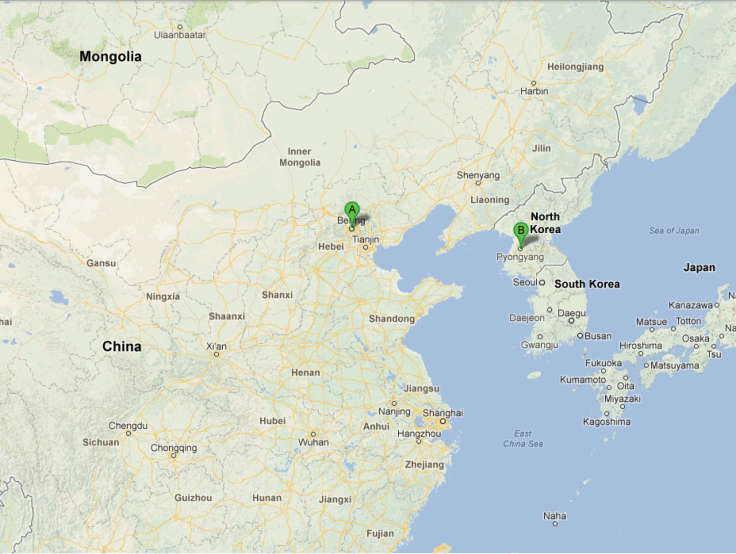Sino-North Korean Friendship Treaty: China Obligated To Defend North Korea During 'Armed Attack' Or Is It?

Is a half-century-old treaty between China and North Korea the reason China continues to defend the pariah nation’s increasingly bizarre actions?
The Sino-North Korean Treaty of Friendship, Cooperation and Mutual Assistance, signed in 1967 by Communist Chinese Premier Zhou Enlai and North Korean supreme leader Kim Il-sung, essentially makes China obliged to defend North Korea. (And vice versa: each of the signatories must “render military and other assistance by all means at its disposal” in the event that the other one comes under “armed attack by any state.”)
In the previous decade, Chinese "volunteers" poured across the Yalu River when Gen. Douglas MacArthur threatened to overrrun North Korea.
In recent months, North Korean threats to launch a nuclear attack on South Korea and its U.S. allies have been escalating. Both South Korea and the U.S. have responded to threats with their own military preparedness, including flying American B-2 stealth bombers above South Korea and performing other military drills in the area.
China, being North Korea’s only significant ally, and providing the recluse nation with oil, food relief and other resources, has begun expressing more reservation in supporting the North, condemning its most recent nuclear test in February and voicing concern over this week's decision to reopen a nuclear reactor.
However, it is more than just the treaty that is keeping China from turning its back on North Korea. Though China and North Korea have been longtime allies, Beijing's main interest is in keeping stability on the Korean Peninsula, and at its northeastern border.
“For the Chinese, stability and the avoidance of war are the top priorities,” Daniel Sneider, the associate director for research at Stanford’s Asia-Pacific Research Center, told the Council of Foreign Relations.
In the event of military action, if Kim Jong-un’s regime were to collapse, millions of North Koreans would likely flee across the border into northeastern China.
“The Chinese are most concerned about the collapse of North Korea leading to chaos on the border,” CFR Senior Fellow Adam Segal added.
However, according to the Council on Foreign Relations, China has been ambivalent on its commitment to intervene on behalf of North Korea under the treaty. China’s growing status as an economic superpower could be at risk, as national strategic interests would likely be jeopardized, in the event of military action in North Korea.
“China conceives itself to have the right to make an authoritative interpretation of the ‘principle for intervention’ in the treaty,” Jaewoo Choo, a Chinese foreign policy expert at Kyung Hee University in South Korea, wrote in Asian Survey.
“China now places more value on national interest, over alliances blinded by ideology,” Choo added.
© Copyright IBTimes 2024. All rights reserved.





















